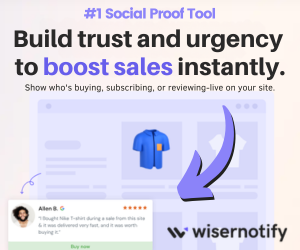
Last Updated on July 14, 2025 by Allen
Market Leadership in White-Label Reputation Management Services
With demand soaring and competition intensifying, the agencies poised to lead are the ones who master reputation management at scale.
In today’s fast-paced digital landscape, market leadership in white-label reputation management has become essential for operational scalability and long-term client satisfaction. Resellers now sit in a prime position, offering solutions that businesses increasingly rely on to protect and enhance their brand image.
For agencies ready to rise above the noise and capture more market share, the real challenge is this: how do you truly differentiate, carve out your niche, and establish lasting authority?
This guide breaks it down with practical, proven strategies to help you do just that.
👉 Interested in growing your agency with white-label solutions? Explore our Reseller Program to learn more.
Understanding Market Leadership in White Label Reputation Management
To dominate as a market leader, it’s essential to understand what this position entails. Market leaders are not simply service providers—they are innovators, thought leaders, and trusted partners. They set trends and help businesses optimize client trust and brand loyalty.
Reputation management plays a crucial role in helping businesses improve their online presence. According to industry reports, the global review management software market is expected to grow at a compound annual growth rate (CAGR) of 17%, skyrocketing from $12.25 billion in 2023 to $26.9 billion by 2033. This tremendous growth underscores reputation management solutions importance and relevance to modern businesses.
As a reseller, your goal is to create tangible results, not just offer services. True market leadership in white-label reputation management means using tools, such as white-label review widgets for conversions, to effortlessly attract and retain clients while proving tangible value over competitors.
Building a Solid Brand Reputation: Key Features of White-Label Reputation Solutions
Without a solid foundation powered by the right tools and strategies, market leadership in white-label reputation management can seem like a far-reaching goal. White-label solutions are the driving force behind successful resellers, providing them with the credibility, scalability, and creativity needed to compete in today’s market.
Enhancing Brand Trust Through Personalization
To maintain market leadership in white-label reputation management, personalization is everything. Resellers who go beyond templated offerings by crafting tailored solutions win over more clients.
For example, resellers can create branded dashboards, automated survey tools, and customer reporting systems unique to each client’s branding. Personal products like these seamlessly integrate into the client’s operations and boost confidence in the services you deliver. Personalized approaches also help maintain engagement and customer loyalty.
Core Features That Drive Success With White Label Reputation Management Services
- AI-Powered Automation
Leverage artificial intelligence to reduce manual workloads and operational friction. AI tools can automate responses to reviews using sentiment analysis, free up human resources for strategy creation, and drive customer satisfaction with quicker acknowledgments. - Client Customization
Fully customizable dashboards or reporting options branded under a client’s name bolster confidence and trust. Customization helps deliver a better customer experience with precision features tailored for specific industries and services. - Comprehensive Review Management
Businesses thrive on public perception, so consistent monitoring of major sites such as Yelp, Google Business, and Facebook reviews is crucial for campaign endorsements. Comprehensive review management ensures consistent feedback monitoring while streamlining timely responses that align with campaign goals. - Scalable Technology
True market leaders in white-label reputation management ensure their systems scale alongside client growth. As businesses expand, the ability to seamlessly handle larger data sets, more reviews, and increasing customer interactions sets you apart from competitors. Tools that automate workflow, such as Review Dingo’s Reviews AI, not only save time but also adapt effortlessly to each client’s needs without sacrificing quality or efficiency.
These core features form the backbone of your white-label service offerings, solidifying your foundation for market leadership. Clients will stay loyal to your agency when you deliver real value consistently.
Carving Out Your Niche: Differentiation Strategies
Specialization Is Market Leadership
One of the fastest routes to achieving market leadership in white-label reputation management is identifying and serving a niche market. Specialization sets you apart as an expert and magnetizes clients who need tailored, industry-specific solutions.
For Example:
- Healthcare Providers: Reputation is critical for hospitals and physicians. Healthcare clients need tools to manage sensitive patient feedback and comply with privacy regulations (such as HIPAA).
- Hospitality Industries: Reviews impact where people eat, stay, or travel. Hotels and restaurants need automated tools to respond quickly to online reviews while increasing their visibility on platforms like Yelp, TripAdvisor, or Google Maps.
Specialization builds trust with specific audiences, as it shows you understand their challenges. Agencies that embrace niche strategies and white-label reselling prove their expertise and become indispensable partners.
What Makes You Unique?
It’s not enough to offer reputation management—you need to stand out by showing potential clients why your solutions are better. Here’s how to articulate your unique selling proposition (USP):
- Proving ROI: Offer clear, measurable outcomes. For clients, numbers matter—showing improvements in visibility metrics like Google reviews or customer clicks proves your ability to drive results.
- Offering Specialized Tools: From white-label local SEO solutions to hyper-local listing management integrations, providing beyond-the-basics offerings sets resellers apart.
- Delivering Ongoing Support: Resellers who proactively maintain clear communication and provide regular progress reports create loyal, retained clients.
Establishing Credibility and Authority
To lead in market leadership in white-label reputation management, you must actively build trust and authority. Clients evaluating reputation management services naturally gravitate toward providers who deliver demonstrated results.
Ways to Solidify Your Market Position:
- Professional Online Presence: Agencies must practice the same strategies they preach to their customers. Ensure you’re active across platforms like social media. Optimize your website with relevant keywords like “best white-label ORM systems.” Establish thought leadership through guides and blog articles about white-label reputation management trends in 2025.
- Testimonials and Case Studies: Highlight successful campaigns in as many platforms as possible. Share case studies like how a dental client got 45 positive Google online reviews in just 30 days. Publish client testimonials across review platforms, blogs, and newsletters to create social proof. Resellers who emphasize provable results showcase why they’re worthy partners.
The Role of Data in Reputation Management Leadership
To lead the market, resellers must go beyond surface-level activities and embrace data-driven decision-making. Analyzing customer feedback, public sentiment, and competitor trends allows agencies to deliver personalized and predictive solutions that set them apart from their competitors.
Key Data-Driven Strategies
- Tracking Sentiment Trends
Changes in public sentiment can uncover opportunities or alert businesses to potential risks. For example, healthcare organizations can track recurring complaints about long wait times and implement proactive operational changes. Tools like AI-driven analytics help visualize these trends and allow businesses to act before small issues snowball into reputation crises. - Granular Personalization
By segmenting customer behaviors by factors like geography, demographic, and purchase history, resellers can provide hyper-targeted review strategies. Personalized review generation prompts, specific to each customer base, ensure relevance and engagement, leading to better reviews. - Proving Quantitative Results
Data visualization dashboards align white-label services with measurable business outcomes. Monthly performance reports, such as increases in organic search rankings or higher Yelp ratings, show your clients the tangible ROI of your services— solidifying trust and long-term contracts.
Using data effectively puts your agency a step ahead, giving you critical insights to proactively help clients maintain a solid reputation while improving potential outcomes in areas like visibility and online behavior analysis.
A Robust Sales Strategy for Converting Potential Clients
Great products and services need a successful sales strategy to be impactful. To attract the right audience and convert leads into loyal clients, agencies employing white-label reputation management should focus on education, engagement, and consistent follow-ups.
Components of a Winning Strategy
- SEO Optimization:
Position your agency on the first page of search engines by targeting relevant keywords like “white-label review management solutions” or “reputation management for enterprises .” Highlight your expertise and streamline user journeys by ensuring visitors discover educational blogs, guides, and case studies on your website. - Client Education:
Developing thought leadership materials, such as how to respond to negative reviews or case studies on specific industries, strengthens your reputation as an expert. Clients who feel empowered by your materials are far likelier to trust your services. - Email Campaigns:
Automated drip campaigns help nurture potential leads by sharing insights, updates, and proven success stories, like those gained from tools such as AI-powered messaging. Updating clients consistently keeps your agency top-of-mind. - Social Media Engagement:
Position yourself as a thought leader on platforms like LinkedIn, where B2B interactions matter most. Share relevant articles, engage with your audience, and discuss emerging topics like review management trends in 2025. Marketing agencies that are open and approachable across social platforms grow stronger followings that often lead to larger contracts.
A strong sales strategy paired with educational initiatives ensures you meet your audience where they are, nurturing relationships that drive steady client growth.
Why Online Review Responses Matter
Building credibility also involves thoughtfully responding to reviews, both negative and positive. Research shows that 88% of consumers are more likely to use businesses that respond to all reviews, and 93% expect businesses to respond within a week.
As a reseller, teaching clients the importance of review responses reinforces their reputation while strengthening your perception as a leader in online reputation strategies. Take the extra step to educate them on best practices for addressing negative feedback professionally, showcasing their dedication to customer satisfaction.
Frequently Asked Questions (FAQs)
Q1: What is white-label reputation management, and how does it work?
White-label reputation management is a service that allows digital marketing agencies to resell ready-to-use platforms for managing and improving clients’ online reputations, under their branding. Tools like review generation, competitor monitoring, and sentiment analysis make this process efficient and customizable.
Q2: Why is market leadership important for resellers in this space?
Market leadership gives resellers an edge by establishing them as thought leaders and reliable partners. Businesses value proven expertise, which leads to larger contracts and long-term collaborations for resellers occupying the top tier of their niche.
Q3: Which industries benefit most from white-label reputation management?
Industries that interact heavily with clients benefit the most, such as healthcare, retail, e-commerce, legal services, and hospitality. These sectors rely on positive branding to retain customers and acquire new ones, so tools like white-label review widgets for conversions become incredibly valuable.
Q4: How do AI-powered tools enhance reputation management strategies?
AI tools streamline reputation management by automating time-intensive tasks like responding to reviews, analyzing trends, and generating real-time insights. These tools are scalable, cost-effective, and vital for delivering comprehensive reputation management services at scale.
Q5: Can small businesses afford white-label reputation management services?
Yes. Many white-label services include tiered packages that align with smaller organizations’ budgets. Resellers can offer flexible, affordable solutions without compromising on the tools and features clients need to flourish.
Final Blueprint for Market Leadership
Achieving market leadership in white-label reputation management requires dedication, innovation, and scalability. By becoming a Review Dingo Reseller, you can leverage data, offering unique tools, and personalizing client experiences, your agency paves the way to success.
Want to lead the pack in white-label reputation management? Contact the experts at Review Dingo now. Reach out and book a discovery call. Let’s partner to create customized, innovative solutions for your clients, ensuring your agency becomes the market leader in white-label reputation management!







